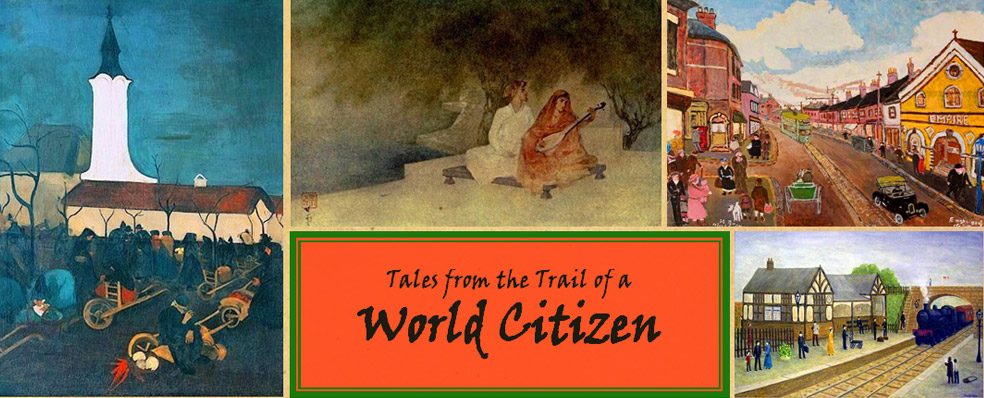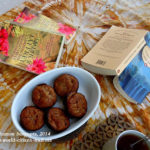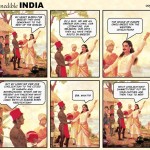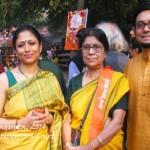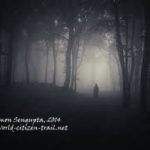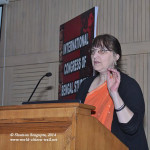Happiness is dozing off with a book open on your chest, in the quite and solitary weekend mornings in Kampala ….
Built at an elevation of 3,900 feet above sea level, on a series of hills along the northern side of Lake Victoria, Kampala is a beautiful lush green city. It is a lovely and delightfully laid back place.
It also has the most beautiful mornings I have experienced anywhere in the world.
In the early mornings, the temperature hovers between 20-24 degrees centigrade and the air is translucent; there is a gentle breeze and an ethereal quality to the sky, particularly if it has rained the previous night.
And the mornings are are still and silent, save for the delightful calls of innumerable birds.
My spacious living room opens into a beautiful garden and when I open the sliding glass doors, boundaries between indoors and outdoors get blurred.
I generally spend weekend mornings lying down on a couch in the living room and reading a book in natural light, or even doing nothing – letting the mind go simply blank and feeling the world go by – sometimes, not realizing even that….
************************************
Solitude:
I think all parents should encourage their young children to cultivate periods of isolation, silence, solitude and total inaction, every day – even if these periods are brief.
I have a theory that it opens up parts of the brain (and important connections in the brain) that otherwise remain closed and unconnected in children and adolescents, because of all the clutter and sensory overload – the constant storm of external stimulation, particularly of electronic nature and the ceaseless demand to process large amounts of information.
I think periodic solitude and silence is important for developing self-awareness, empathy, reasoning and emotional intelligence among children and adults alike.
***************************
Come to me in my private seclusion:
The second monsoon has hit Uganda and temperatures have suddenly plummeted. I can’t describe how pleasant and beautiful it is. The early mornings in particular have this unusual translucent quality and the nights are deep and still, broken only by the occasional waft of the cool monsoon winds, call of the occasional night bird and the chirping of countless insects.
I am reminded of Tagore’s
আমার নিশীথরাতের বাদলধারা, এসো হে গোপনে
আমার স্বপনলোকে দিশাহারা ॥
ওগো অন্ধকারের অন্তরধন, দাও ঢেকে মোর পরান মন –
আমি চাই নে তপন, চাই নে তারা ॥
যখন সবাই মগন ঘুমের ঘোরে নিয়ো গো, নিয়ো গো,
আমার ঘুম নিয়ো গো হরণ করে ।
একলা ঘরে চুপে চুপে এসো কেবল সুরের রূপে –
দিয়ো গো, দিয়ো গো,
আমার চোখের জলের দিয়ো সাড়া ॥
Come to me in my private seclusion
The downpour of my dark night
Come to me unbridled
In the realm of my dreams
O my innermost treasure,
In the depth of my darkness
Wrap me up, my heart and soul
For now I seek not the sun, nor the stars
The hour when the rest of the world is deep in sleep
Take away my sleep, rob me of my repose
Come to me in my private chamber
Come to me in the strains of a melody
Respond, O do respond I beseech
To the plaintive call of my tears
(Translation: Shumon Sengupta)
The core message of the song, the key to the song in my view lies in the last two lines ..
দিয়ো গো, দিয়ো গো,
আমার চোখের জলের দিয়ো সাড়া ॥
Respond, O do respond I beseech
To the plaintive call of my tears
The quest, the call of the soul is so beautifully expressed in the simple words দিয়ো গো, দিয়ো গো .. দিয়ো সাড়া! The intense yearning, the pain, the desperate ‘reaching out’ is so beautifully expressed in the simple, yet exquisite and heart wrenching melody.
Who else, but Tagore could have pulled this off so elegantly!
And now, something about the artist and this particular album would be in order.
Sahana Bajpaie has this unusual tonal quality to her voice, which is husky, heady and melodious at the same time. She has a straightforward, unadorned style of rendition, stripped of any excesses or mannerisms, but imbued with an emotional intensity that is at the same time, refreshingly understated.
The soul stirring, haunting quality of her voice makes me think that this song was composed by Tagore especially for her. Sahana’s style is truly very original and unique.
https://www.youtube.com/watch?v=vDCAuuoXVZc
*******************
आज जाने की जिद ना करो, यूँ ही पहलू में बैठे रहो …
Do not insist on leaving today, do sit for a while by my side ..
– Faiyyaz Hashmi
The High Priestess of Ghazal graces Coke Studio!
Mohtarma Farida Khanum has been a favorite and beloved artist of mine from the time I first heard her more than two decades back, when my father gifted me a HMV cassette of her recordings.
While age has taken its toll, as it spares none and does with all, it hasn’t taken away the ‘soz’ – what is known in Persian/Urdu as the passion, the depth, the pathos, the intensity, from her golden voice. If anything, it has only intensified and taken on deeper shades and grandeur with time, for the artist.
A good artist entertains. A great artist like Mohtarma Farida Khanum does that for sure, but goes beyond and becomes, what we call in Bengali, “marma-bhedi”; one who touches the very core of our heart, our very soul – whose art resonates deeply with an underlying truth of our inner selves.
I remember being totally mesmerized when I heard the artist so many years back .. and I remain equally so today..
****************
Remembering a great man .. M.K.Gandhi.
I think Gandhi’s biggest legacy to the world is that he conclusively (and for the first time) demonstrated the power of non-violence as a political force – as a force for change. He proved that political movements and our striving for liberation from oppression can be accomplished without bloodshed – that the force of evil can truly and effectively be opposed by the force of truth.
Civilized people don’t live by the law of the jungle where ‘might is right’, where brute force prevails. Civilized people do not follow ‘matsya nyaya’, in which ‘big fish eat small fish’, we do not live by the force of violence.
As civilized people, we live by ‘dharma’ – by our righteous, ethical conduct. We live by empathy, by compassion, by love and by peace.
Now, Gandhi was by no means the first to talk about non-violence. Both Mahavira and Buddha preached this 2,500 years before Gandhi did. What is however truly remarkable about Gandhi is that he proved the effectiveness of ‘Ahimsa’ (non-violence) and ‘Satyagraha’ (the force of truth) as ethical and potent political tools.
His concept of ‘Satyagraha’ to me is a truly civilizational force. That is his lasting legacy for all humanity.
Now, coming to this song:
‘Vaishava janato tene kahiye’ is a Gujrati Bhajan written by the 15th century (CE) mystic, Narsinh Mehta. The first line means, “you are truly the enlightened / liberated one (a vaishnava) when you understand the sufferings of others”.
Whatever be Gandhi’s flaws, failures and shortcomings (he certainly was no saint, as he is often made out to be), no one can deny that he had a deep sense of empathy for human beings – for human suffering, particularly of the down trodden, for the human condition in general. It is therefore not surprising that he was so deeply drawn to this devotional song.
************
Silently shall thou dwell, in the deepest recesses of my heart:
While searching for a rendition of “Tumi Robe Nirobe” (Silently shall thou dwell), I came across this outstanding video of this exquisite composition, sung by a young artist I had not heard of earlier.
Gifted with a melodious, tenor voice (with a slight tremor, which makes the voice even more appealing), Sanam Puri, a Punjabi, renders this song in near perfect Bengali diction – something that young native Bengali singers of Kolkata and elsewhere, with their highly affected, put-on, pseudo westernized Bengali accents might want to learn to do.
The composition is suffused with tender romanticism in both lyrics and melody. And true to the spirit of the song, the artist sings it with insight and integrity and invests his rendition with a rare sensitivity – an understated passion, completely befitting this exceptionally beautiful composition.
And the instrumental arrangement that goes with the song is outstanding to say the least, particularly the elder Samar Puri, on the lead guitar.
And then there is Tagore, standing above all, shining through everything else, and reigning supreme. It is amazing that a song written 120 years back (1895 to be precise) still retains its romantic charm and appeal – both lyrically and musically. Even to this date, this song, like many other compositions of Tagore, remains surprisingly universal, modern, contemporary and fresh, if not near eternal.
This is one of the few songs that we know of, that Tagore had written addressing his wife, Mrinalini Devi. The poet was in the full bloom of youth then and had had his fourth child, Mira, a year earlier. He was experiencing marital bliss and contentment – a sense of fulfillment in family life, he had not felt earlier. And his feelings poured out in this unusually beautiful, haunting song.
It was truly an ode to Mrinalini Devi, his wife.
Those of us who are keen students of Tagore, can’t help observe with sadness that such tender bliss was not to be experienced by the poet ever again, in the long, productive and increasingly lonely and sad life that followed – a life that was at once filled with inner greatness and grandeur, and stupendous and sustained achievements in multiple spheres, as with profound grief, sorrow, setbacks and loneliness.
That makes this song that much more special to me and other students of the poet.
I have not found a satisfactory English translation of this song, not even the one by Tagore himself. Tagore was after all not a great translator in English.
I have shared my translation of this song with FB friends earlier and I am doing so yet again.
তুমি রবে নীরবে হৃদয়ে মম
নিবিড় নিভৃত পূর্ণিমানিশীথিনী-সম॥
মম জীবন যৌবন মম অখিল ভুবন
তুমি ভরিবে গৌরবে নিশীথিনী-সম॥
জাগিবে একাকী তব করুণ আঁখি,
তব অঞ্চলছায়া মোরে রহিবে ঢাকি।
মম দুঃখবেদন মম সফল স্বপন
তুমি ভরিবে সৌরভে নিশীথিনী-সম॥
Silently shall thou dwell
In the deepest recesses of my heart
Like the radiance of the solitary full moon
Spread across the night sky
The springtime of my life, my entire universe
Thou shall lend glory to,
Like the radiance of the solitary full moon
Spread across the night sky
In thy solitary pensive gaze
Shall thou watch over me
The shelter of thy drape
Shall be my secluded refuge
My sorrow, my pain, my dreams that come true
Thou shall render sweet with thy fragrance
Like the radiance of the solitary full moon
Spread across the night sky
– Rabindranath Tagore
(Translation: Shumon Sengupta)
I shall end my comment with my sense of deep gratitude to Sanam Puri and other members of his band. They have rendered this century old composition in an contemporary format, using a contemporary sensibility, without compromising one bit on the essential spirit, tenderness and beauty of the song.
They have surpassed themselves with this recording and created a shining example for Bengali singers of Rabindra Sangeet from the newest generation – young men and women struggling to reclaim this genre of Bengali music in a contemporary format (primarily as Band musicians), using contemporary sensibilities.
****************
